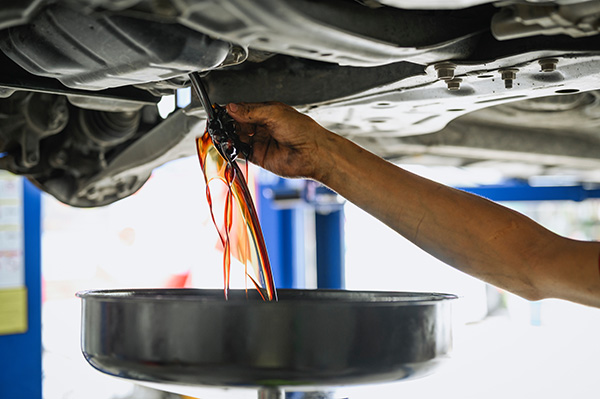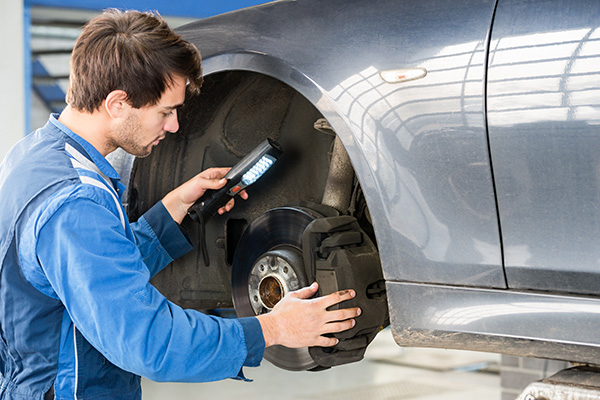Posted on 12/23/2025
At South Denver Automotive we offer comprehensive Chevrolet Colorado maintenance and repair services. From engine problems, transmission failure, suspension repair, brake system problems, or drivetrain faults, to spark plugs replacement, brake fluid change, new brake pads, or a/c repair – if your Chevy needs support, we can help. Our nationally ASE-certified technicians will provide your Chevy Colorado with everything it needs to serve you reliably – we offer OEM quality parts, and back our work with industry-leading 4 year / 40,000 mile warranty – because your peace of mind matters. Keeping your Chevrolet Colorado in top shape requires expertise in both mechanical and electrical systems, as well as diagnostic skills to ensure the problem is fixed right the first time. At South Denver Automotive we perform digital vehicle inspections, and provide you with a copy of the results, so you can prioritize the repairs to fit the budget and your transportation needs ... read more
Posted on 12/19/2025

Skipping an oil change once in a while can feel harmless, especially if the car still runs quietly and the dash is not screaming at you. The problem is that engine wear does not show up overnight. It builds slowly as the oil breaks down, gets dirty, and stops protecting the way it should. By the time you hear new noises or notice performance changes, a lot of damage may already be done. Why Engine Oil Changes Matter More Than They Used To Modern engines run hotter, use tighter clearances, and often have variable valve timing or turbochargers that depend on clean oil. The oil is not just lubrication, it also carries away heat and tiny metal particles, and it keeps internal passages free from sludge. As it ages, the additives that fight wear, corrosion, and deposits get used up. When oil is fresh, it flows quickly on cold starts and maintains a strong film between moving parts. Once it is worn out, it can thin too much at high temperatures or become thick and dirty w ... read more
Posted on 12/15/2025
Seeing the check engine light turn on in your Subaru Crosstrek can be stressful, especially when you’re not sure how serious the problem might be. Subaru Crosstrek relies on advanced computer systems, and that warning light is your vehicle’s way of asking for attention. Addressing this problem early helps protect your safety, prevents costly repairs, and keeps your Crosstrek running the way it should. If the check engine light flashing – this indicates a problem serious enough to pull over as soon as it is safe to do so and to have your car towed to a local repair shop. If the check engine light is solid (not flashing) it usually means the vehicle has detected a problem that needs to be checked soon, but it’s ok to drive, assuming you don’t notice any serious symptoms like engine misfires. If everything looks fine, it’s best to avoid hard acceleration and head to a trusted repair shop for professional diagnostics. Common reasons a Subaru check engi ... read more
Posted on 11/29/2025
A Chevrolet is built to handle daily commutes, weekend road trips, and everything in between—but it performs at its best only with proper care. At South Denver Automotive we offer Chevrolet owners wide range of maintenance, diagnostic and repair services to keep their vehicles dependable, and ready for the road. Whether you’re driving a hardworking Silverado, a family-friendly Tahoe, or a fuel-efficient Malibu, your Chevy deserves attention from trained professionals who know your vehicle inside and out. Most Popular Chevrolet Services we offer:Routine Maintenance - A well-maintained Chevy lasts longer and performs better. We provide regular oil service, tire rotations, brake inspections, and fluid checks to keep your automobile in peak condition. Brake Repair & Safety Checks - One of your car's most crucial safety features is its brakes. To guarantee dependable, confident stopping power, we handle disk brakes a ... read more
Posted on 11/28/2025

Brakes do not fail all at once. They leave hints in sound, feel, and stopping distance. The tricky part is knowing whether the pads are worn out, the rotors are uneven, or both need attention. Getting that call right keeps stops smooth and short, and it prevents you from buying parts you do not need. Brake Pads vs. Rotors Pads create friction against the rotors to slow the car. Rotors act as the spinning surface and heat sink. Pads are designed to wear and be replaced more often. Rotors wear too, and their surface can harden or develop thickness variation from heat. When rotors are out of spec, new pads will not stay quiet or smooth for long. Typical Pad Wear Signs Pads start talking before they are done. A light squeal at low speed that repeats each stop often comes from the small wear indicator tab touching the rotor. You may also notice longer pedal travel or a faint burning smell after stop-and-go traffic. If the squeal turns into a grind or sc ... read more
Posted on 10/31/2025

Lexus vehicles are known for blending reliability with advanced technology. That means most modern models rely on dozens of sensors, control modules, and digital communication systems to run everything from the engine to your heated seats. While this tech improves safety, comfort, and performance, it also makes electrical problems harder to pinpoint without the right tools. The days of diagnosing a problem with a basic multimeter are mostly behind us. Even seemingly simple issues, like a flickering dashboard light or an intermittent starting problem, may require scanning multiple onboard systems for error codes or voltage irregularities. One Small Fault Can Trigger Bigger Issues In Lexus models, electronic systems are often linked together. A problem in one part of the car may cause a domino effect. For example, a malfunctioning body control module can affect your power windows, interior lights, and even remote key functions. Similarly, a weak battery or poor ground ... read more
Posted on 10/14/2025
Hybrid vehicles are pretty common on Denver’s busy streets, and for good reason. They deliver excellent fuel economy, lower emissions, and a smooth driving experience. But just like any other car, hybrids need proper care and maintenance to keep them running efficiently. At South Denver Automotive, we offer broad range of hybrid maintenance services and repairs, helping hybrid owners to protect their investment and enjoy worry-free driving. Our team understands that hybrids are different from traditional gas-powered cars. They come with advanced components like electric motors, battery packs, and complex computer systems that require skill and advanced diagnostic tools. That’s why our ASE-certified technicians are trained in hybrid technology and use cutting-edge equipment to service your vehicle. Whether you drive a Toyota Prius, Honda Accord Hybrid, Ford Escape Hybrid, Chevy Tahoe Hybrid, or any of the dozens of hybrid models, we’ve got you covered. From routine m ... read more
Posted on 10/12/2025
Owning a Toyota Prius is all about reliability, efficiency, and peace of mind. But like any vehicle, your Prius needs proper care to perform at its best. Whether you’re driving through Denver traffic or heading out on a long trip, regular service and timely repairs make all the difference in keeping your hybrid running smoothly. At South Denver Automotive we specialize in Prius maintenance and repair, helping drivers protect their investment and enjoy worry-free driving. The Toyota Prius is an exceedingly well-designed and well-built car, but even the most dependable vehicles can run into problems over time. Some common concerns Prius owners face include: Brake system problems – squealing, grinding, or a spongy pedal are signs your brakes need attention. Cooling system concerns – overheating or coolant leaks can put serious stress on the engine and hybrid components. Warning lights – from the check engine light to hybrid system alerts. Excessive oil consump ... read more
Posted on 9/26/2025
There’s nothing worse than hopping into your Volkswagen on a hot Denver afternoon and realizing the AC isn’t keeping up. Whether you drive a Jetta, Passat or Tiguan, a reliable air conditioning system is key to a comfortable ride in the city. At South Denver Automotive we specialize in keeping auto AC systems in top condition. Your AC system does more than just keep you cool—it helps with air quality and even defogs your windows for safe driving. Over time, refrigerant can leak, seals can crack with age, and critical parts like the compressor may start showing signs of strain. Signs You VW Might Need AC Service If your Volkswagen’s air conditioning isn’t working like it should, you’ll usually notice one or more of these: Air isn’t cold, even on the lowest setting Weak airflow from the vents Strange odors when the AC is running Odd noises coming from the system Moisture or leaks around AC components If you spot these war ... read more
Posted on 9/26/2025

Owning an Acura in Denver offers a blend of luxury, performance, and reliability. But the unique driving conditions in Colorado demand a more tailored approach to maintenance. Staying on top of essential services ensures your Acura continues to deliver the comfort, smoothness, and efficiency you expect while preventing costly repairs later. Whether you commute through the city daily or head into the mountains on weekends, your Acura’s systems endure added stress. Proactive care now can extend your vehicle’s life and protect its performance for years to come. 1. Engine Oil and Filter Changes Oil is the lifeblood of your Acura’s engine, keeping moving parts lubricated and preventing premature wear. Denver’s stop-and-go traffic, combined with colder winter starts, can cause oil to break down faster. Following the manufacturer’s recommended oil ... read more